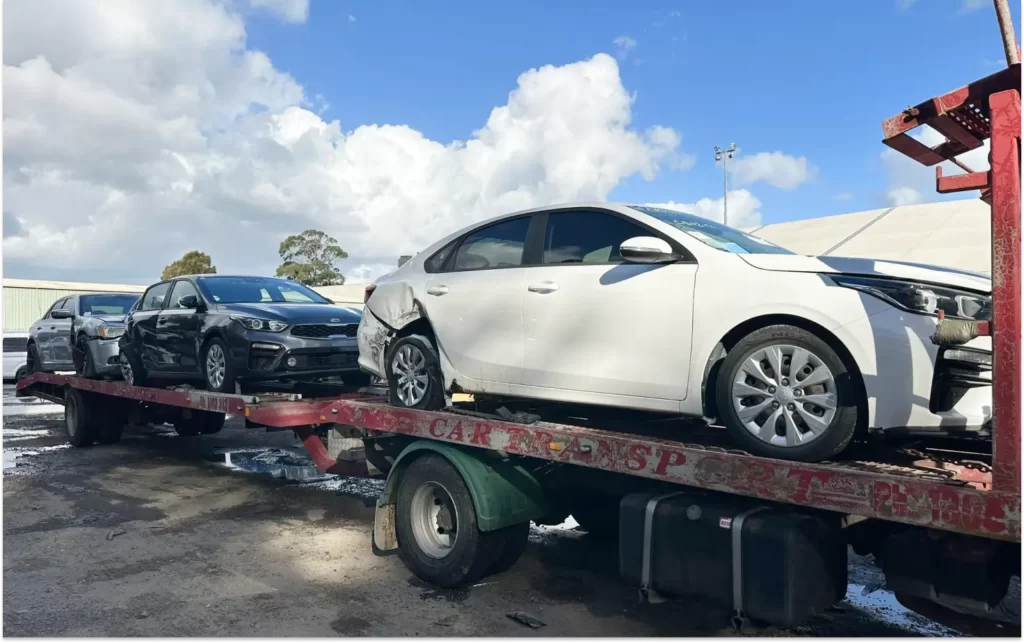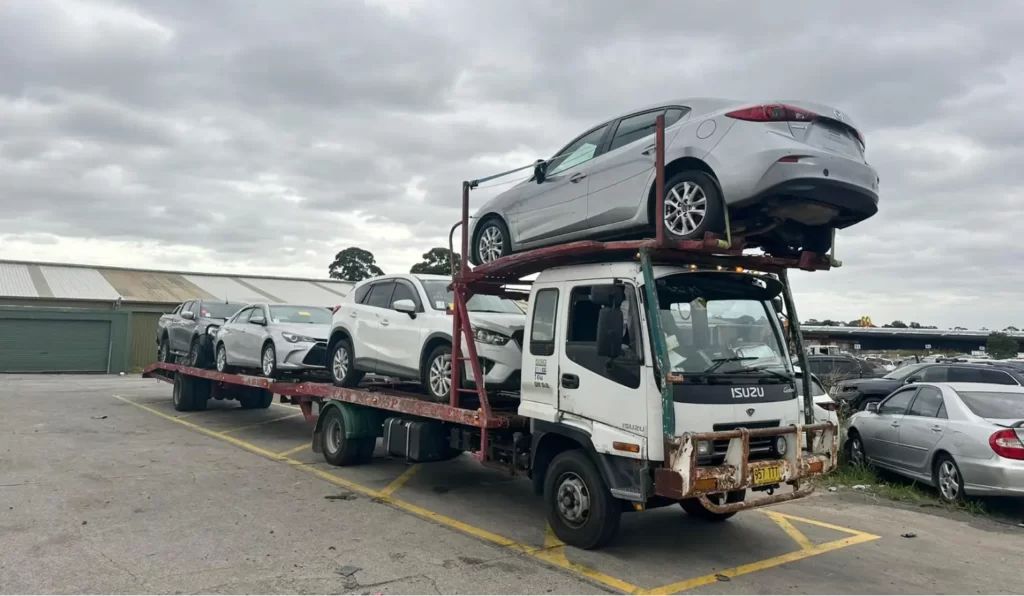The Role of Auto Wreckers in Vehicle Recycling, Auto wreckers are critical players in the automotive recycling industry, ensuring that end-of-life vehicles (ELVs) are responsibly dismantled, recycled, and disposed of, reducing their environmental impact. In today’s world, where sustainability and resource conservation are becoming increasingly important, auto wreckers are helping reduce waste, protect the environment, and promote the circular economy.

Environmental Conservation
Auto Wreckers in Vehicle Recycling play a crucial role in environmental protection by recycling valuable materials from vehicles and ensuring that hazardous fluids are safely disposed of. Many vehicles contain toxic substances like oil, coolant, and battery acid, which can severely contaminate soil and water if not managed properly. By safely extracting and disposing of these materials, wreckers help prevent environmental damage. Additionally, salvaging metals, plastics, and glass from old vehicles prevents them from ending up in landfills, where they would take decades to decompose.
Furthermore, recycling car parts lowers the demand for new raw materials, reducing the energy consumption and carbon emissions associated with automotive production. The steel and aluminum from scrapped vehicles can be reused, contributing to a reduction in the mining and processing of raw metals, which are energy-intensive activities that exacerbate global warming.
Sustainable Practices in Vehicle Recycling
One of the core principles of auto wreckers is sustainability. By recovering parts that can be reused or refurbished, wreckers give a second life to many vehicle components, significantly reducing waste. Many parts, such as engines, transmissions, doors, and windows, can be salvaged and sold, benefiting car owners who need affordable replacement parts. This practice aligns with the goals of sustainability by minimizing the environmental footprint of vehicle disposal.
Moreover, auto wreckers contribute to the circular economy by keeping materials in circulation for as long as possible. Instead of ending up in a landfill, salvaged car parts can be repaired and reused, extending their lifespan. This circular approach to resource management not only reduces waste but also promotes resource efficiency and resilience in the automotive supply chain.
Economic Benefits of Auto Wreckers
In addition to their environmental impact, auto wreckers also offer significant economic benefits. By selling affordable, high-quality used parts, they provide cost-effective alternatives to expensive new parts, enabling vehicle owners to maintain their cars at a lower cost. This affordability is especially beneficial for those in lower-income communities, who may not have the resources to purchase brand-new components.
Auto wreckers also create jobs in local communities, from dismantlers and mechanics to sales and administrative staff. This job creation stimulates local economies and promotes community development, particularly in regions that rely on industries connected to recycling and automotive services.
Hazardous Waste Management
Handling hazardous materials is another critical responsibility of auto wreckers. Vehicles often contain dangerous chemicals and fluids, such as brake fluids, coolants, and oils. If these substances are not properly managed, they can contaminate the environment and pose health risks. Auto wreckers are equipped to extract and dispose of hazardous waste safely, preventing pollutants from entering the ecosystem and causing damage.
By taking on the challenge of handling these materials in an environmentally responsible way, auto wreckers play a pivotal role in reducing the health risks associated with improper vehicle disposal.
Supporting the Circular Economy
The role of auto wreckers in supporting the circular economy cannot be understated. By salvaging and reusing components, they minimize the demand for new manufacturing, which requires considerable energy and resources. Auto wreckers also reduce the amount of waste that goes to landfills by recycling as many parts as possible.
This practice helps conserve resources and fosters a more sustainable automotive industry. By promoting resource efficiency and waste reduction, auto wreckers contribute to a greener economy that prioritizes environmental stewardship and long-term sustainability.
Community Welfare and Car Wreckers
Car wreckers provide more than just environmental and economic benefits—they also contribute to community welfare. Many offer services such as free vehicle removal, which can be a significant relief for individuals who no longer need or cannot afford to repair their vehicles. Additionally, auto wreckers frequently engage in community initiatives and charitable activities, demonstrating their commitment to social responsibility.
By providing affordable vehicle parts and supporting local businesses, wreckers also ensure that even economically disadvantaged communities have access to transportation solutions.
Conclusion on Auto Wreckers in Vehicle Recycling
In summary, auto wreckers are essential in vehicle recycling, significantly contributing to environmental conservation, resource efficiency, and economic growth. Their sustainable practices align with the principles of the circular economy, helping reduce waste and minimize the automotive industry’s environmental impact. By salvaging and reusing car parts, managing hazardous materials, and supporting local economies, auto wreckers play a vital role in shaping a more sustainable and eco-friendly future.
For more details on how auto wreckers contribute to sustainability, check out this informative guide here. If you’re interested in learning how vehicle dismantling helps reduce waste, explore our additional resources here.





